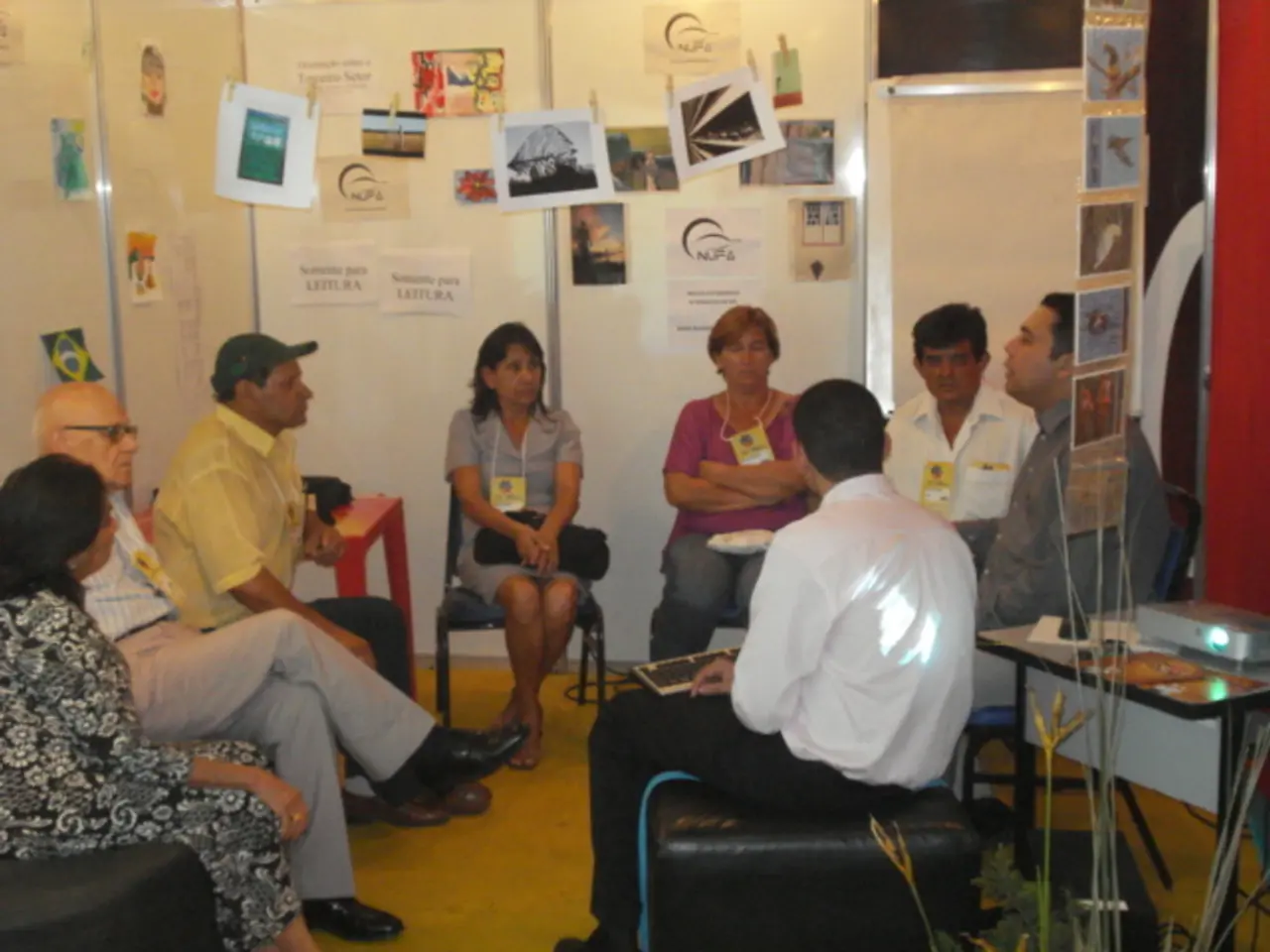Navigating Criticism from Critical Individuals: Strategies for Coping and Growth
Renata, a highly respected senior strategic leader in her organisation, is not just focusing on her own work but also ensuring that her peers and senior stakeholders understand her impact. However, last week, she shared a piece of unsettling news – a strategic peer consistently complains about her and claims she brings no value.
This peer, known for their negative attitude towards others, is difficult to work with. Nevertheless, Renata is determined to handle this situation effectively. To do so, she is following key strategies that emphasise professionalism, empathy, clear communication, and boundary-setting.
Firstly, Renata is actively listening to the feedback, understanding the concerns, and demonstrating respect for the peer's perspective, even if it is delivered negatively. Secondly, she is setting clear boundaries, diplomatically redirecting conversations towards respectful and productive dialogue. If the negativity persists, she is calmly reinforcing her boundaries.
Renata is also focusing on constructive dialogue, framing feedback and responses around specific behaviours and solutions rather than personal criticism. She is documenting negative interactions objectively, noting dates, times, what was said/done, and the impact on her work.
Inga Bielińska, an MCC ICF coach, has been instrumental in guiding Renata through this process. She suggested creating a stakeholder map to identify who's feedback matters in a project or role and to recognise whose opinion deserves weight. Inga and Renata realised that the peer has a different working style, valuing thoroughness, while Renata values impact.
The action plan includes listing projects her team is responsible for, project managers assigned, key milestones, successes, challenges, and lessons learned. The first step, according to Inga, is to investigate the feedback to understand what the person is complaining about and the facts behind the frustration.
Renata is also choosing whose feedback matters and building relationships with them intentionally. She is making her impact more visible in day-to-day work and treating criticism as data, looking for what can be learned from it. Inga advises that feedback should be seen as data, not truth.
Renata's action plan also includes cross-functional initiatives with broader cultural impact. She is creating an action plan to address feedback about her work and is choosing whose feedback matters, building relationships with them intentionally. This approach not only addresses the immediate issue but also fosters a more positive and productive work environment.
Inga's guidance, combined with Renata's determination and strategic approach, is expected to help turn this challenging situation into an opportunity for constructive improvement. After all, as neuroscience-backed insights suggest, curiosity can "cure" anxiety.
It's worth noting that the Forbes Coaches Council is an invitation-only community for leading business and career coaches, and Inga Bielińska is a member of this esteemed group. This context underscores the calibre of guidance Renata is receiving.
- Renata, in collaboration with MCC ICF coach Inga Bielińska, is devising an action plan to address negative feedback from a peer, focusing on professionalism, empathy, clear communication, and boundary-setting.
- Inga Bielińska, a member of the Forbes Coaches Council, has been instrumental in guiding Renata through this challenging situation, suggesting the creation of a stakeholder map to identify whose feedback matters and whose opinion deserves weight.
- As part of her action plan, Renata is documenting negative interactions objectively, treating criticism as data, and looking for what can be learned from it, keeping in mind that feedback should be seen as data, not truth.
- Renata is aiming to foster a more positive and productive work environment by tackling this issue, and her action plan includes cross-functional initiatives with broader cultural impact.
- Inga Bielińska's guidance, combined with Renata's determination and strategic approach, is expected to help turn this challenging situation into an opportunity for constructive improvement, aided by neuroscience-backed insights suggesting that curiosity can "cure" anxiety.




